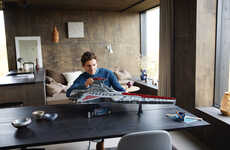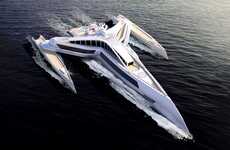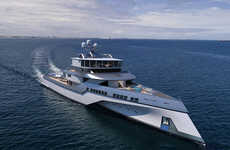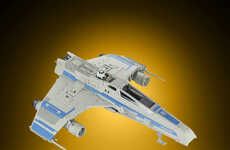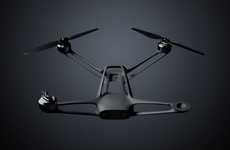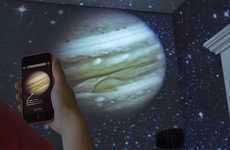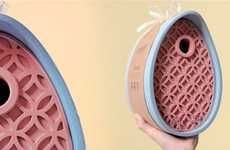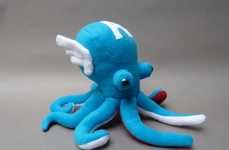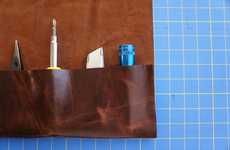
The Ship Design for Clone Wars TV Series is Based on Dinosaur Vetabrae
Andrew Sztein — January 22, 2013 — Art & Design
Ever wonder how SciFi franchises like Star Wars design their ships and environments? One confirmed piece of inspiration for the futuristic designs lies in the natural designs of the ancient past. Leave it to eagle-eyed nerds to notice that the Umbaran starfighters from the Clone Wars TV series looked rather familiar. The familiarity was bred from the striking similarity to the shape of the vertebrae of an apatosaurus.
David Hobbins, the original designer of the ship confirmed that the similarity between the dino bones and Star Wars design was more than just coincidence.
The most exciting thing about the design however, is the fact that we're now one step closer to seeing dinosaurs in spaceships, which would only be the coolest thing to ever happen to SciFi or archaeology.
David Hobbins, the original designer of the ship confirmed that the similarity between the dino bones and Star Wars design was more than just coincidence.
The most exciting thing about the design however, is the fact that we're now one step closer to seeing dinosaurs in spaceships, which would only be the coolest thing to ever happen to SciFi or archaeology.
Trend Themes
1. Natural-inspired Design - The trend towards natural-inspired designs in SciFi franchises creates opportunities for interdisciplinary collaboration with science fields such as paleontology and botany.
2. Bio-mimicry Technology - The trend of using bio-mimicry technology in ship design offers opportunities for applying elements of dinosaur anatomy and other natural designs to spacecraft engineering.
3. Nostalgia-driven Design - The trend towards nostalgia-driven design in SciFi franchises creates opportunities for reimagining familiar and beloved elements of the past in a futuristic context.
Industry Implications
1. Film and Television Production - The film and television production industry can leverage natural-inspired designs and nostalgia-driven design trends to create engaging and innovative visual content.
2. Aerospace Engineering - The aerospace engineering industry can incorporate bio-mimicry technology into spacecraft design to create more efficient and effective spacecraft designs.
3. Paleontology and Archaeology - The paleontology and archaeology industries can collaborate with the film and television production industry to provide authentic and accurate representation of prehistoric elements in natural-inspired designs.
3.4
Score
Popularity
Activity
Freshness

